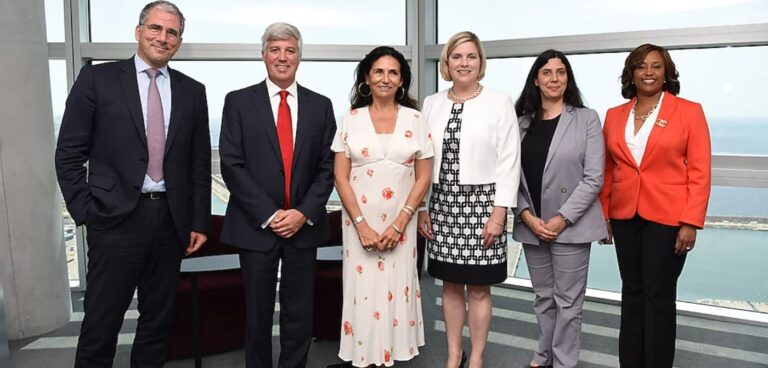Shell and CMA CGM Group have signed agreements that will see them work closely together to accelerate decarbonizing the marine sector. This includes a multi-year liquefied natural gas supply agreement, which will supply LNG to CMA CGM’s 13,000 TEU vessels in the Port of Singapore, starting from the second half of 2023.
The simultaneous operation LNG bunkering will be undertaken by FueLNG, a joint venture between a unit of Shell in Singapore and Keppel Offshore & Marine (Keppel O&M) utilizing FueLNG Bellina that is already in operation and an 18,000m3 LNG bunker vessel that will come into service in 2023.
“CMA CGM continues to see the potential in LNG as a marine fuel, so it is a hugely positive step to be extending our supply commitments in this area,” said Tahir Faruqui, general manager, head of downstream LNG at Shell. “By using LNG as a marine fuel, the industry immediately places itself on a decarbonizing pathway, starting today. LNG is a fuel in transition and offers a credible pathway to liquefied biomethane and the hydrogen-based fuel liquefied e-methane; both having the potential of being net zero.”
Furthermore, the two companies have signed an MoU that encompasses several areas, including: the advancement of low-carbon marine fuels, such as liquid biofuels, bio/e-methane (to LNG), bio/e-methanol, for new and existing vessels; the delivery of innovative technical solutions, which include LNG and hydrogen blending, methane slip abatement technologies and fuel cell technology development; exploring voluntary and mandated trading mechanisms for carbon credits; and joint advocacy for net zero-emissions policies.
“Collaboration and partnership are critical in paving the way, which will include a mosaic of lower-carbon fuels, technology sharing and partnership projects to realize a net-zero future in shipping,” said Melissa Williams, vice president marine, sectors and decarbonization at Shell. “Thus, I am excited about our agreement with CMA CGM as it allows both businesses to bring their respective scale and size to drive impactful change in the industry – helping our customers to overcome their challenges and meet their ambitious decarbonization goals in the process.”
Both companies plan to extend their partnership to the road and aviation sectors in the future. In doing so, this demonstrates the vital role effective partnerships will play in accelerating decarbonization in shipping and beyond.



